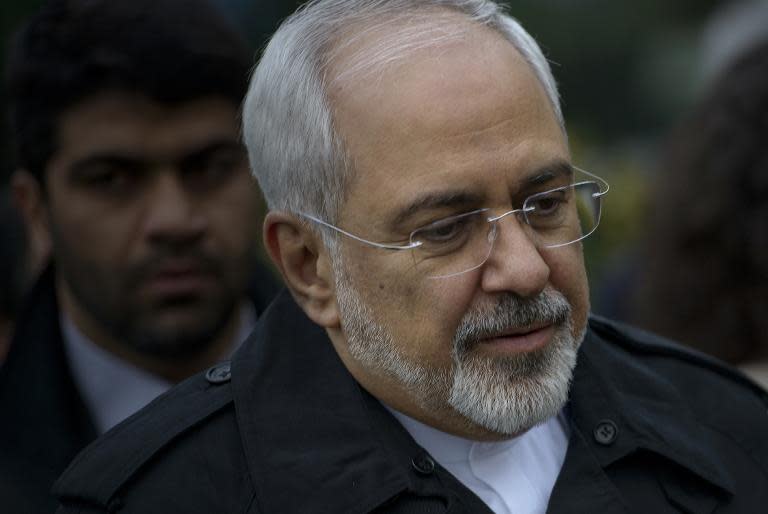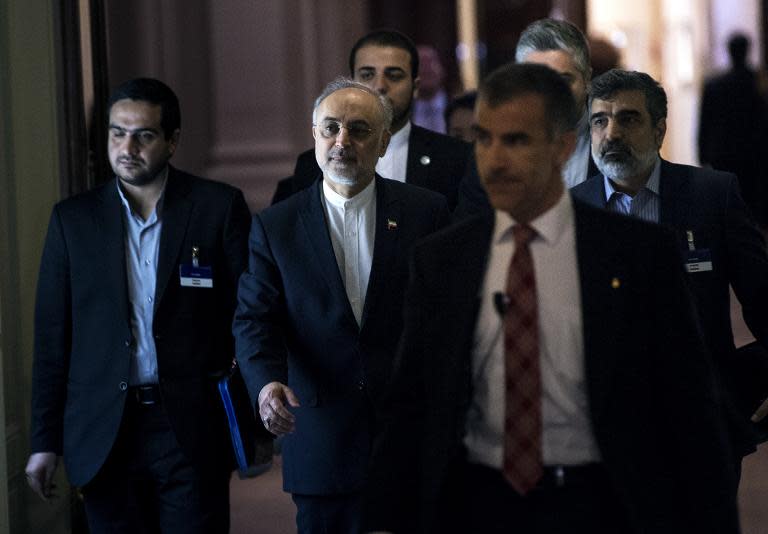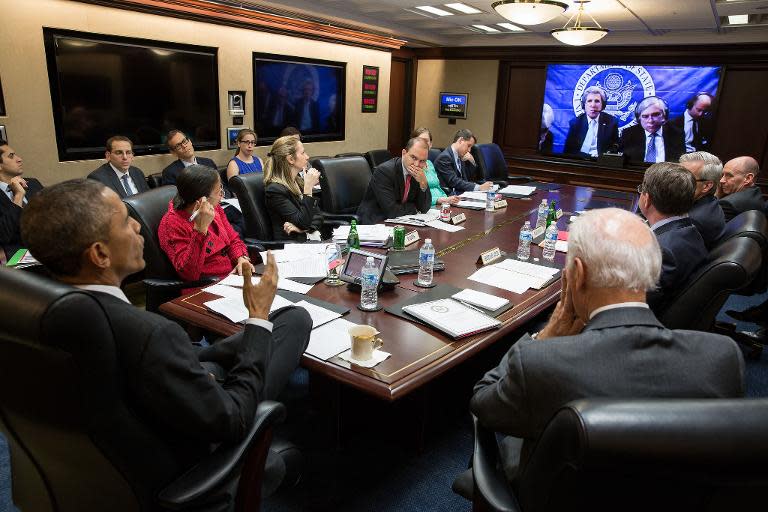Zarif says 'seize the moment' as Iran talks hit final stretch
Iran's foreign minister Wednesday told world powers to "seize the moment" and drop "excessive demands" as marathon high-stakes nuclear talks headed into another long bruising night of hard bargaining. French Foreign Minister Laurent Fabius arrived back in Switzerland to rejoin the negotiations saying the talks were in the final stretch. "We are a few metres ... from the finishing line, but we are well aware that the final metres are the hardest," Fabius told reporters. The stakes were very high, he said, adding that at issue was the question of non-proliferation, and "Iran's reintegration into the international community." Fabius was re-joining US Secretary of State John Kerry and their counterparts from Germany and Britain. "Iran has shown its readiness to engage with dignity and it's time for our negotiating partners to seize the moment," Mohammad Javad Zarif told reporters late on a seventh day of talks in Lausanne. Iran had shown that it wants "an entente" with the world but it "will not accept submitting to force and excessive demands. Those we are negotiating with should accept this reality," Zarif said. It remained unclear however if six world powers and Iran will manage to agree the main contours of a deal which would put any Iranian drive for a nuclear bomb out of reach. The aim is to turn this into a comprehensive accord by June 30 when an interim deal struck in November 2013 -- which saw Iran freeze certain nuclear activities in return for minor sanctions relief -- expires. Success would end a 12-year-old standoff. Failure may set the United States and Israel on a road to military action to thwart Iran's nuclear drive. The White House warned again Tuesday that the military option to deprive the Islamic republic of nuclear arms remained "on the table". "We continue to make progress, but have not reached a political understanding," US State Department acting spokeswoman Marie Harf said. Kerry, who has been negotiating with Zarif -- and since the weekend other foreign ministers -- for the past week, "will remain in Lausanne until at least Thursday morning to continue the negotiations," she said. - Hopeful - Despite missing Tuesday's midnight deadline, Russian Foreign Minister Sergei Lavrov had raised hopes of "an agreement in principle on all key aspects of the final settlement". Iran's chief negotiator Abbas Araghchi had also appeared hopeful, saying he believed "that at the end of the day we will be able to come to a conclusion and a resolution for all issues." He repeated that global powers and Iran were still haggling over two main sticking points. These are a mechanism for lifting crippling sanctions against the Islamic republic, and the country's research and development of new nuclear machinery, he said. The US, Russia, China, Britain, France and Germany want Iran to scale down Iran's nuclear programme to extend the "breakout" time needed for Iran to assemble enough nuclear material to make a bomb. Iran denies wanting the bomb and its negotiators are under strict orders from supreme leader Ayatollah Ali Khamenei to refuse any curtailing of its programme without sanctions relief. Global powers have always refused an immediate lifting of all sanctions, preferring instead a phased suspension, in order to be able to swiftly put them back into place if Iran violates the deal. - Tough issues - But Western officials poured water on the comments from Lavrov -- who left Lausanne earlier Wednesday -- and Araghchi as the talks stretched through the day. An "optimistic" British Foreign Secretary Philip Hammond said a "broad framework of understanding" had been reached, but he also said there were "some key issues that have to be worked through". If the outlines under negotiation fall short of firm commitments by Iran, US President Barack Obama could find it hard to fend off attempts by his Republican opponents to pass fresh sanctions on Tehran. Iran's negotiators are also under pressure from domestic hardliners not to give too much away while also delivering on President Hassan Rouhani's promise to win the lifting of sanctions. US Republicans fear that Iran will still be able to get the bomb -- a concern shared by Israeli Prime Minister Benjamin Netanyahu, whose country is widely assumed to have nuclear weapons itself. Netanyahu, in his fourth broadside in as many days, warned against a bad deal that would "endanger Israel, and the Middle East and the peace of the world."











